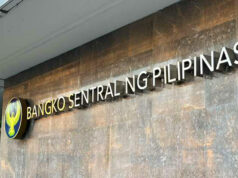System checks show Wirecard money did not enter PHL – BSP
THE CENTRAL BANK has maintained that the missing money related to the Wirecard AG incident did not enter the Philippines, noting the country has a “strong financial oversight” to guard against possible threats.
“As has been previously stated, current available evidence shows that the money did not enter the Philippine banking system. We have systems in place that send us red flags in case of huge/suspicious transactions,” the Bangko Sentral ng Pilipinas (BSP) said in a statement on Friday.
Wirecard initially said its missing $2.1 billion was in accounts with two Asian banks. BDO Unibank, Inc. and the Bank of the Philippine Islands (BPI) have denied any business relationships with the German payments firm.
Both banks also imposed measures against employees involved in the fraudulent documents related to the incident.
Later on, Wirecard said its management assessed the missing $2.1 billion in funds probably do not exist.
The BSP said it worked with the Anti-Money Laundering Council (AMLC) for a multi-pronged investigation to look into whether the illicit funds entered the country.
“Investigation by the BSP’s Financial Supervision Sector (FSS), which focuses on determining whether any banking regulations were breached, is well underway,” it added.
For its part, the AMLC is investigating if the amended Anti-Money Laundering Act of 2001 was breached in the incident, the BSP said.
“The BSP and the AMLC are working closely with the National Bureau of Investigation on the matter and is open to coordination with concerned international authorities to hold unscrupulous individuals accountable,” it added.
“We continue to emphasize the importance of well-established risk culture in supervised entities,” it said.
The central bank said it has strict measures in place related to “the disqualification and watch-listing of erring bank officers”, while AMLC has AMLA compliance guidelines for non-financial professionals, including lawyers and accountants, know-your-customer requirements, as well as transaction reporting mechanisms. — LWTN



